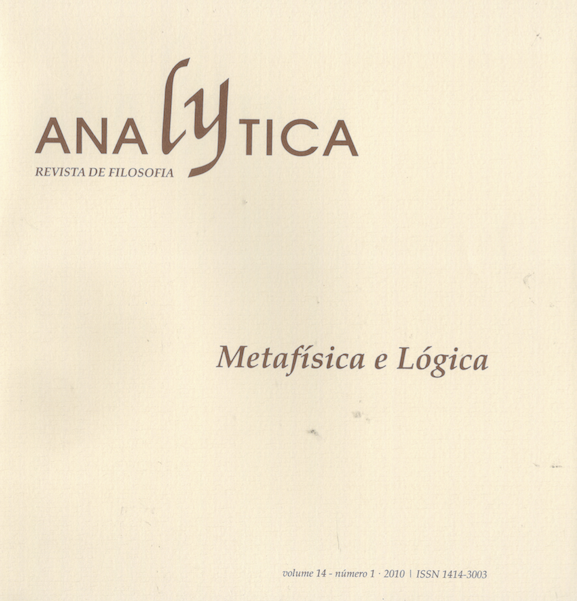A antinomia da faculdade de julgar teleológica
Resumo
No centro da antinomia da faculdade de julgar teleológica na terceiraCrítica está a afirmação de Kant segundo a qual toda "aparência" (Anschein) de conflito entre os princípios mecânico e teleológico provém da confusão de um princípio da faculdade de julgar reflexiva com outro da determinante. Admitido que o princípio do mecanicismo apresentado na terceira Crítica é equivalente ao princípio causal introduzido na primeira, sugere-se que Kant realizou uma notável alteração relativamente ao status desse princípio. Essa mudança poderia ameaçar a coerência da filosofia crítica. Entretanto, o presente artigo mostra que, dadas as condições kantianas para a existência de uma antinomia, háapenas uma aparência de antinomia da faculdade de julgar teleológica - já que um conflito entre princípios constitutivos não pertenceria à faculdade de julgar reflexiva.
Abstract
At the heart of the antinomy of teleological judgment in the third Critiqueis Kant's contention that all "semblance" (Anschein) on a conflict between the mechanistic and teleological principles stems from the confusion of a principle of reflective with one of determinative judgment. Assuming that the principle of mechanism of the third Critique is equivalent to the causal principle of the first, it suggests that Kant underwent a remarkable change regarding the status of this principle. This change could be thought to threaten the coherence of the critical philosophy. However, the present paper shows that, given Kant's views on the requirements for the existence of an antinomy, there is only an appearance of antinomy of teleological judgment - since a conflict between constitutive principles would not pertain to the power of reflective judgment.
Downloads
Publicado
Edição
Seção
Licença
Os autores que publicam nesta revista concordam com os seguintes termos:
- Os autores mantêm os direitos autorais e concedem à revista o direito de primeira publicação, com o trabalho simultaneamente licenciado sob a Licença Creative Commons Atribuição-SemDerivações 4.0 Internacional (CC BY-ND 4.0), que permite a redistribuição, comercial ou não comercial, desde que a obra original não seja modificada e que seja atribuído o crédito ao autor.
- Os autores têm autorização para assumir contratos adicionais separadamente para distribuição não-exclusiva da versão do trabalho publicada nesta revista (ex.: publicar em repositório institucional ou como capítulo de livro), com reconhecimento de autoria e publicação inicial nesta revista.
- Os autores têm permissão e são estimulados a publicar e distribuir seu trabalho online (ex.: em repositórios institucionais ou na sua página pessoal) a qualquer ponto antes ou durante o processo editorial, já que isso pode gerar alterações produtivas, bem como aumentar o impacto e a citação do trabalho publicado (Veja O Efeito do Acesso Livre).


